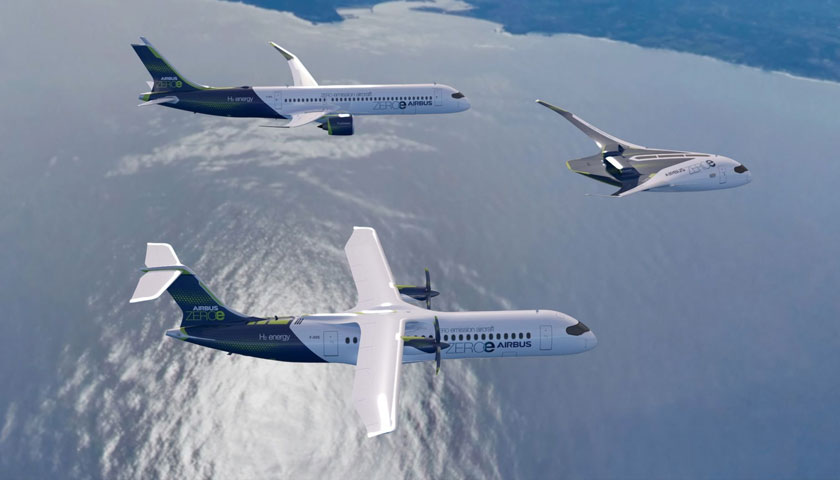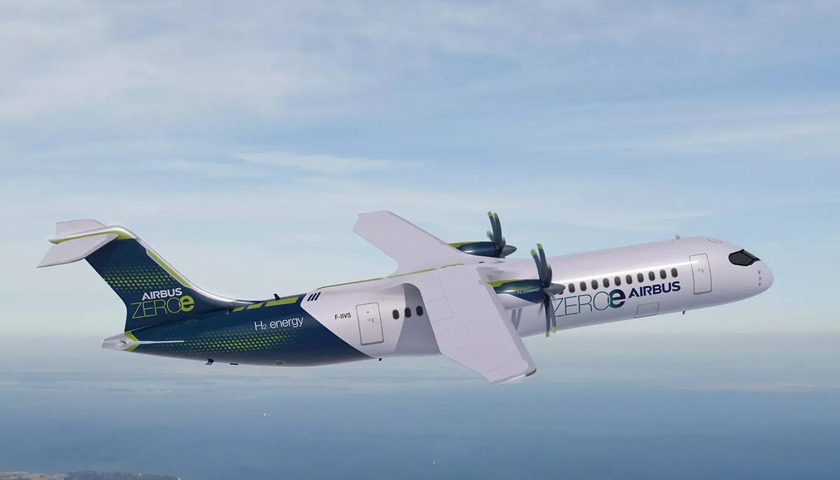Airbus has announced a new partnership with aircraft lessor, Avolon, to study the potential of hydrogen-powered aircraft, marking the very first collaboration of the ZEROe Project with an operating lessor. Announced at the Farnborough Airshow, Airbus and Avolon will investigate how future hydrogen-powered aircraft could be financed and commercialised, and how they might be supported by the leasing business model. Airbus is putting significant resources into exploring how the industry can introduce hydrogen-powered aircraft and how it works on the ground with airports and airlines. The development of a viable…
Read MoreTag: Airbus
Airbus to boost sustainable aviation fuel production through investment in LanzaJet
Airbus is investing in LanzaJet, a leading sustainable fuels technology company and producer, in line with its ambition to act as a catalyst for the global development of sustainable aviation fuels (SAF). This investment will support the development of the Alcohol-to-Jet (ATJ) pathway, an important step required to produce SAF at scale by enabling LanzaJet to further expand its capability and capacity to scale its proprietary Ethanol to Sustainable Aviation Fuel (SAF) process technology. “Sustainable aviation fuels are one of the most important levers available to decarbonise aviation, but their…
Read MoreAirbus welcomes London Gatwick to global hydrogen hub network
Airbus has teamed up with London Gatwick, easyJet and Air Products, the world’s largest hydrogen supplier, to expand hydrogen capability and infrastructure in the UK as the manufacturer moves closer to its target of getting a hydrogen powered aircraft in the sky by 2035. Standing up the right infrastructure is key to enabling hydrogen flight and this partnership is yet another step towards making this a reality in the UK. Under Airbus’ Hydrogen Hubs at Airports framework, the scope of work covers liquid hydrogen supply and storage at the airport,…
Read MoreInnovative aviation liquid hydrogen project launched
An innovative aviation hydrogen handling and refuelling project, led by Airbus and supported by academic partners, airport operators and leading hydrogen-industry companies, has been launched to demonstrate small-scale liquid hydrogen aircraft ground operations at three European airports. The urge to decarbonise our economy and to develop Europe’s energy independence is leading to a major trend of hydrogen for mobility and stationary applications. Hydrogen will also be a solution to decarbonise short- and medium-haul aviation and will be crucial for the advancement of low-carbon aviation operations. “The GOLIAT (Ground Operations of…
Read MoreAirbus: Watering hope for tomorrow
The United Nations’ Sustainable Development Goal (SDG) 6 aims to provide safe drinking water and adequate sanitation for all. To help meet this goal, in addition to reducing water use on its sites, Airbus participates in projects to build water infrastructure and secure clean water access and improved sanitation in underserved communities. Access to water and sanitation are recognised by the United Nations (UN) as human rights – fundamental to everyone’s health, dignity and prosperity. Yet, according to UN data, 2.2 billion people still live without access to drinking water,…
Read More


